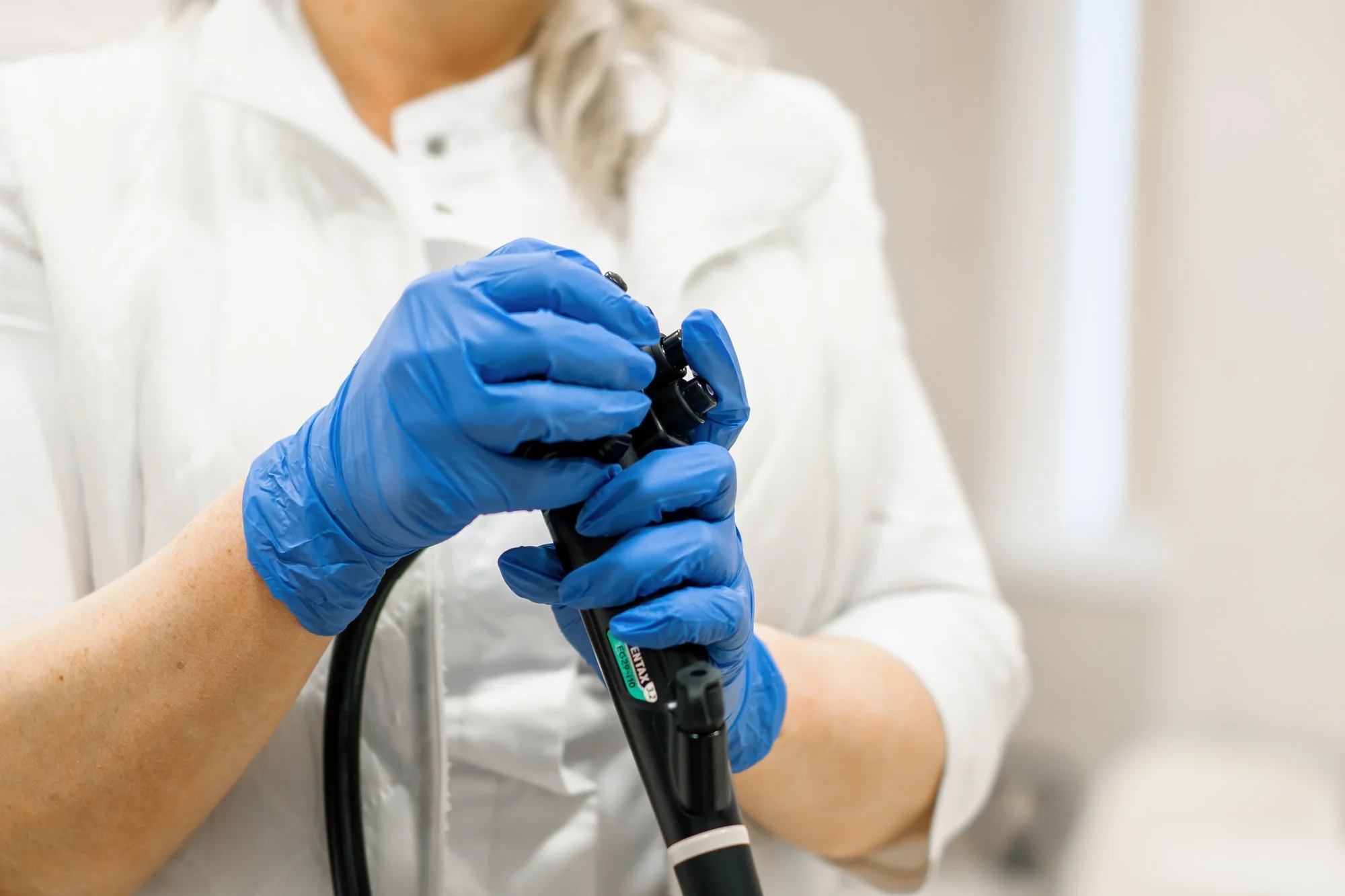Did you know that there are two kinds of colonoscopy: the traditional colonoscopy and CT colonoscopy? Both help gastroenterologists detect and remove small growths called polyps. If you need your routine colonoscopy screening for colon cancer and wonder if the test can be done in a different way, read on to discover the differences between these two GI assessments.
What is a Traditional Colonoscopy?
A traditional colonoscopy is a minimally invasive assessment of the interior of the large intestine. Performed after a day of fasting and laxatives to cleanse the bowel, the traditional colonoscopy takes about 30 minutes.
With this reliable test, the doctor sees and removes colon polyps and can assess other areas of the colon which may be diseased or malformed. Highly accurate when performed by an experienced gastroenterologist, a traditional colonoscopy can detect the earliest signs of colon cancer.
How is a Traditional Colonoscopy Performed?
During this test, you are positioned on the examination table on your left side with your legs bent at the knees. Then, the gastroenterologist inserts a thin, lighted catheter into your anus and rectum. This tube contains a tiny camera which takes real-time video and still images and sends them to a computer monitor for viewing by the doctor.
As the camera advances through the entire length of the colon, the doctor can see and remove polyps. These polyps will be biopsied for the presence of cancer cells. The GI specialist can also see areas of irritation and bleeding and investigate reasons why you may have chronic diarrhea, bleeding, or other symptoms.
Traditional colonoscopy is done on an outpatient basis, and most people need simple sedation for relaxation. Others may benefit from general anesthesia. Your gastroenterologist will tell you ahead of time how to fast and cleanse your colon and determine if you need sedation or anesthesia for your test.
Afterward, you will rest in recovery for a short period of time, review results with your doctor, and return home to rest further. It is important that you be accompanied by a responsible adult who is able to drive you home after your colonoscopy.
What is a CT Colonoscopy?
A CT colonoscopy uses computerized tomography imaging to create numerous cross-sectional slices of the colon. Viewing these images, the doctor can see polyps and other areas of concern, such as ulcerations or diverticulum.
Then, the doctor can remove the polyps for lab analysis. CT colonoscopies produce excellent adenoma (precancerous) detection results.
How is a CT Colonoscopy Performed?
You will undergo an at-home bowel cleanse the day before the procedure. Unlike the traditional colonoscopy, you will not have to bring a driver with you to the testing site because you will not be sedated for this brief 15-minute examination.
During the test itself, you will be positioned on your side, and the doctor will introduce a catheter into your rectum. The catheter delivers a measured amount of CO2 gas into the bowel, from which you may feel some pressure.
Then, you may be positioned on your back and side again as the CT scanner takes images of the interior of your bowel. After the test, you can get dressed, talk to the doctor about your results, and drive home or return to work. If polyps were removed, you will receive biopsy results in a matter of days.
Which Colon Cancer Screening Test is Right for You?
You and your GI doctor will determine which kind of colon cancer screening test is right for you and your overall health status. In general, traditional colonoscopy is the preferred, and most frequently used, method of detecting polyps.
Traditional colonoscopy is:
- Typically performed on patients ages 45 and up every 10 years or at intervals determined by the gastroenterologist.
- Best for patients who have never had a colonoscopy previously.
- Best for patients who have a familial history of colon cancer.
- Best for patients who have familial adenomatous polyposis, an inherited condition which may increase the chances of developing colon cancer.
CT Colonoscopy is:
- Best for people of average cancer risk (in other words NOT for high-risk patients).
- Best for patients who do not want or cannot have sedation or anesthesia.
- Better for individuals who have had bowel obstructions.
CT Colonoscopy Near Me at inSite Digestive Health Care
Unio Specialty Care offers compassionate, state of the art gastrointestinal assessments and treatments for a wide range of digestive issues. Our team of board-certified and fellowship-trained specialists are passionate about preventive care, such as colon cancer screening with colonoscopy and CT colonoscopy.
To learn more about us, contact the California location of inSite Digestive Health Care near you and book a one-on-one consultation. You will receive the information you need to decide which colon cancer screening test is best for you. You may also request your visit online here.

